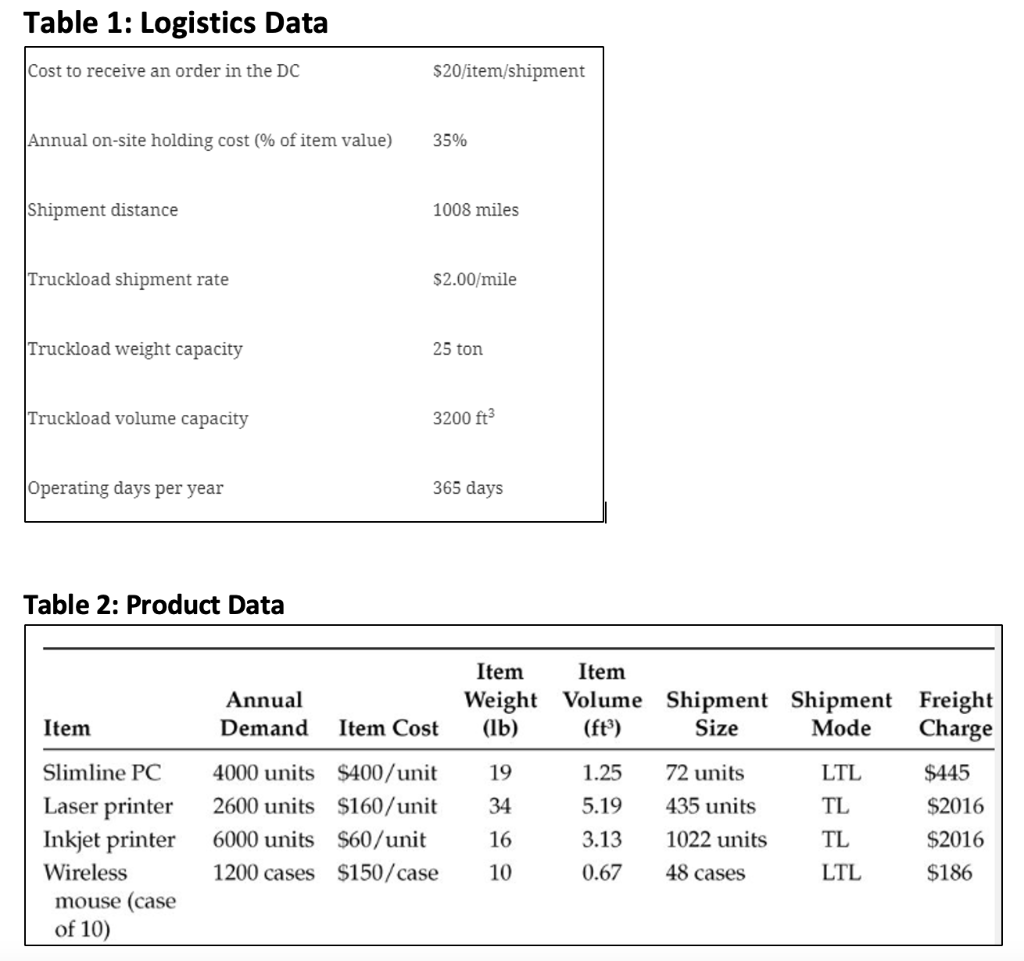Question
You are the new operations manager for the Northeast regional distribution center (RDC) of office supply retailer StapleMax. The distribution center (DC) you mange is
You are the new operations manager for the Northeast regional distribution center (RDC) of office supply retailer StapleMax. The distribution center (DC) you mange is located in Carlisle, PA. You have been asked by your new boss, the VP of Logistics, to evaluate inventory replenishment options for a set of stock-keeping units (SKUs) supplied by a particular technology products wholesaler. These items are shipped to the StapleMax DC via a series of intermodal transfers. The goods are all manufactured in Asia and arrive in the United States at the port of Long Beach, CA, where they are moved, still containerized, via rail to the inland port of Kansas City, KS, where the wholesaler's break-bulk center is located. The goods are ultimately moved from the wholesaler's facility in Kansas City to StapleMax's DC in Carlisle via truck.
StapleMax's freight terms with the wholesaler are DDU*which means F.O.B. destination (i.e., Carlisle), with StapleMax paying the freight bill for the truck shipments from Kansas City to Carlisle. Currently, the four items supplied by the wholesaler all ship independently from Kansas City to the Carlisle DC, some via TL and some via LTL. Important logistics-related data and product-related data appear in Tables 1 and 2.
a. Given the current replenishment policy information, what is the inventory cycle length, in days, for each of the four items?
b. Given the problem data and your answers to part (a) given earlier, which items do you believe to be good candidates to consider shipping jointly via truckload from Kansas City to Carlisle? Why?
c. For the items you chose in part (b) given earlier, compute a trial joint-shipment solution. Your solution should specify the shipment quantity (in units or cases, as appropriate) for each item in the joint solution, and the overall total annual cost of this joint shipment.
d. Do you believe that your solution to part (c) given earlier is an optimal joint-shipment solution? If yes, explain what makes it so. If no, explain the steps you would need to take in order to generate the optimal joint-shipment solution for these items.

Step by Step Solution
There are 3 Steps involved in it
Step: 1

Get Instant Access to Expert-Tailored Solutions
See step-by-step solutions with expert insights and AI powered tools for academic success
Step: 2

Step: 3

Ace Your Homework with AI
Get the answers you need in no time with our AI-driven, step-by-step assistance
Get Started


